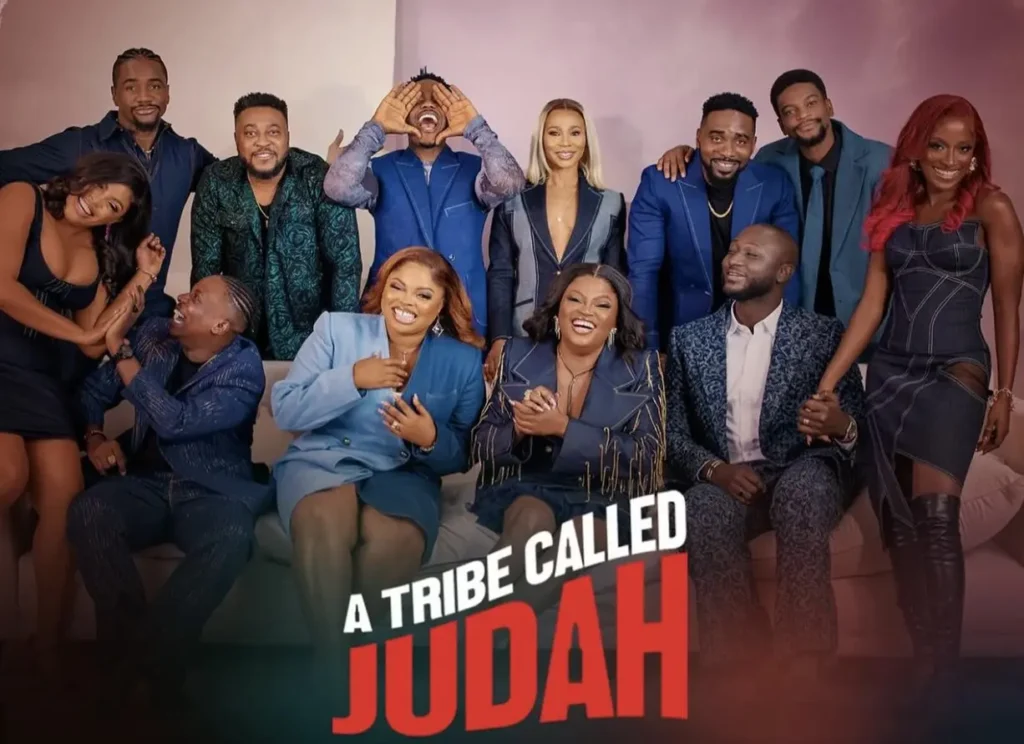
Nigerian Film Industry As Africa’s Most Powerful Export
The Nigerian film industry Africa export story is one of resilience, creativity, and cultural pride. In just three decades, Nollywood has evolved from low-budget home videos to a global powerhouse, making it the second-largest film industry in the world by volume. With thousands of films produced annually, Nollywood is not only an economic driver for Nigeria but also Africa’s strongest cultural export to the world.
📌 New to Nollywood? Start with our guide: Top 5 Nigerian Movies to Stream Right Now on Ewaen Studios.
Origins of Nollywood: From Home Video to National Identity

The Nigerian film industry(Nollywood) rise began in the early 1990s with Kenneth Nnebue’s Living in Bondage (1992). Produced on a modest budget and distributed on VHS cassettes, the film became a cultural phenomenon and set the foundation for an industry built on accessibility and relatable stories.
Pioneers like Ola Balogun, Adeyemi Afolayan, Francis Oladele, Hubert Ogunde, and Eddie Ugbomah fused traditional Nigerian culture with elements of drama, mystery, and folklore. Their work gave Nigerians relatable entertainment while creating a storytelling blueprint that resonated across Africa. Lagos quickly emerged as the vibrant hub of this new wave of African cinema.
Evolution of The Nigerian Film Industry into a Global Industry

Originally known for fast, low-budget productions, Nollywood has steadily increased its scale and quality. Today, films like Funke Akindele’s A Tribe Called Judah—Nigeria’s highest-grossing film with over ₦1.4 billion in box office earnings—show how far the industry has come.
Other global successes such as The Wedding Party, King of Boys, Omo Ghetto, and Battle on Buka Street highlight Nollywood’s ability to deliver world-class cinematography, compelling storytelling, and star power. These successes prove that Nollywood is no longer just about volume; it is about quality films that can compete internationally.
📌 Curious about where to watch these films legally? Check out: 5 Platforms to Stream Nollywood Movies Online Free.
Nollywood’s Global Reach and Diaspora Influence
Nollywood is Africa’s most consistent cultural bridge to the world. Films are beloved across West Africa, where audiences identify with shared cultural values and themes.
In the diaspora—especially in the United States, United Kingdom, and Canada—Nollywood serves as both entertainment and a cultural lifeline. For millions, these films are a direct connection to African identity, values, and traditions.
Milestones like Genevieve Nnaji’s Lionheart (2018), the first Nollywood film acquired by Netflix, solidified Nollywood’s global presence. Since then, titles like Citation, Sugar Rush, and Merry Men have attracted international viewership, proving Nollywood’s export power. According to UNESCO, Nollywood is not only one of the most prolific film industries in the world but also a cultural powerhouse shaping Africa’s soft power.
Cultural Impact: Redefining Africa’s Story
The Nigerian film industry Africa export is not just about entertainment—it is about redefining African identity on the global stage. Unlike Hollywood’s stereotypical portrayals of Africa, Nollywood tells authentic African stories, centered on real struggles, victories, and culture.
Through film, Nollywood challenges outdated narratives and amplifies African voices in global discourse. This storytelling power has transformed Nollywood into Africa’s leading soft power tool—shaping how the continent is seen worldwide.
Economic Contributions of Nollywood

Nollywood is also one of Nigeria’s largest employers, engaging directors, actors, producers, editors, set designers, and countless behind-the-scenes professionals. Its influence extends into related industries like fashion, music, and tourism.
According to the World Bank, Nollywood contributes billions annually to Nigeria’s GDP and employs over a million people, making it a key pillar of the nation’s economy. The industry’s impact extends far beyond film production—it boosts Nigeria’s global cultural influence and drives ancillary sectors across Africa.
Why Nollywood Is Africa’s Most Powerful Export
Cultural Diplomacy: Nollywood reshapes how the world views Africa.
Economic Value: Billions in revenue and jobs across multiple sectors.
Soft Power: African voices influencing global culture and media.
Accessibility: Nollywood thrives on digital platforms like YouTube, Netflix, Amazon Prime, and Tubi, making it globally available.
Final Word
From humble VHS beginnings to Netflix collaborations, Nollywood embodies Africa’s creative strength. The Nigerian film industry Africa export has proven to be more than movies—it is cultural diplomacy, economic power, and a bridge connecting Africa to the world.

0 Comments